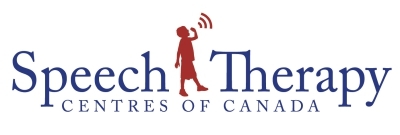People often wonder why we are called SPEECH-LANGUAGE pathologists. Why is there speech AND language in the title? Is there a difference between the two?
As ‘communication experts’ S-LP’s work on both speech AND language. Some children/adults will have difficulty with both speech and language while others will only have difficulty with one or the other. Here’s a brief summary to explain the difference:
SPEECH
This refers to the ability to say the sounds that make up our words. Examples of a speech delay may include: a child who can’t say the “fff” sound, a child with a lisp, a child who says “dut” instead of duck, etc. Some people only have difficulty producing one sound while others struggle with a number of sounds. Regardless of which sound(s) are difficult, it can make it hard for others to understand what is being said. This makes it more challenging for that person to express themselves. Remember: for children, they develop different sounds as they get older. Your speech-language pathologist can tell you if the errors your child is making are age appropriate or if they are delayed in their speech development.
LANGUAGE
Language is broken up into two categories.
Expressive Language – This refers to the ability to speak or express oneself. It can include:
- The early communication behaviors that young children use to express themselves such as pointing, making sounds to get your attention, or gestures (putting their arms up to let you know they would like to be picked up)
- The words you know (vocabulary)
- The ability to put words together (example: putting two words together such as ‘Mommy go’, or putting together multiple words to make a sentence)
- The ability to use correct grammar
Receptive Language – This refers to the ability to understand what others say/things you hear. This can include:
- A child’s ability to understand single words such as ‘ball’ ‘milk’ ‘bath’ or understanding a sentence (e.g. I see a bird in the sky), or paragraphs.
- The ability to follow instructions (example: understanding “go to your room and get your bear”, understanding driving instructions to get to a friend’s place)
- Understanding different kind of words such as prepositions (on, in, beside) or concepts (more/less, big/little, up/down etc.)
- The ability to understand what the “wh questions” (what, where, who, why) are asking of them (example: ‘who’ questions refer to people, ‘what’ questions refer to objects)
Speech, expressive language, and receptive language all work together to enable us to communicate and interact! As you can see, language delay is quite different from speech delay and requires a different focus. Check out our other blogs for more content on specific areas of speech-language therapy.
Written by:
Carla Montgomery, M.H.Sc. SLP(C)
Speech-Language Pathologist, Reg. CASLPO
